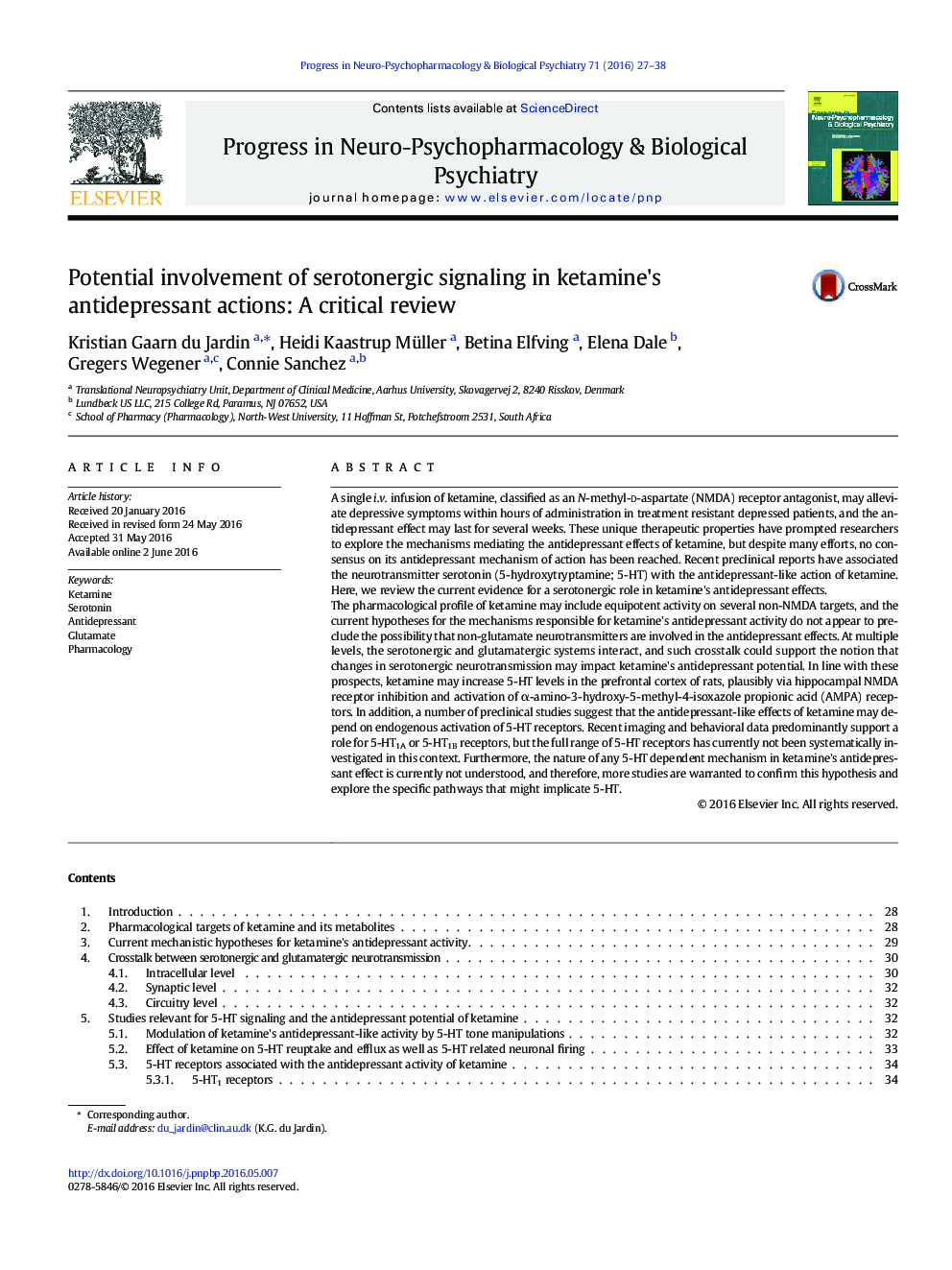| کد مقاله | کد نشریه | سال انتشار | مقاله انگلیسی | نسخه تمام متن |
|---|---|---|---|---|
| 2564648 | 1561023 | 2016 | 12 صفحه PDF | دانلود رایگان |
• Ketamine has equipotent effects on mechanisms other than NMDA receptor inhibition.
• Current hypotheses for ketamine's antidepressant activity are critically reviewed.
• Multiple aspects of serotonergic neurotransmission are modulated by ketamine.
• Antidepressant-like effects seem to depend on endogenous 5-HT receptor activation.
• Recent data predominantly support a role for 5-HT1A or 5-HT1B receptors.
A single i.v. infusion of ketamine, classified as an N-methyl-d-aspartate (NMDA) receptor antagonist, may alleviate depressive symptoms within hours of administration in treatment resistant depressed patients, and the antidepressant effect may last for several weeks. These unique therapeutic properties have prompted researchers to explore the mechanisms mediating the antidepressant effects of ketamine, but despite many efforts, no consensus on its antidepressant mechanism of action has been reached. Recent preclinical reports have associated the neurotransmitter serotonin (5-hydroxytryptamine; 5-HT) with the antidepressant-like action of ketamine. Here, we review the current evidence for a serotonergic role in ketamine's antidepressant effects.The pharmacological profile of ketamine may include equipotent activity on several non-NMDA targets, and the current hypotheses for the mechanisms responsible for ketamine's antidepressant activity do not appear to preclude the possibility that non-glutamate neurotransmitters are involved in the antidepressant effects. At multiple levels, the serotonergic and glutamatergic systems interact, and such crosstalk could support the notion that changes in serotonergic neurotransmission may impact ketamine's antidepressant potential. In line with these prospects, ketamine may increase 5-HT levels in the prefrontal cortex of rats, plausibly via hippocampal NMDA receptor inhibition and activation of α-amino-3-hydroxy-5-methyl-4-isoxazole propionic acid (AMPA) receptors. In addition, a number of preclinical studies suggest that the antidepressant-like effects of ketamine may depend on endogenous activation of 5-HT receptors. Recent imaging and behavioral data predominantly support a role for 5-HT1A or 5-HT1B receptors, but the full range of 5-HT receptors has currently not been systematically investigated in this context. Furthermore, the nature of any 5-HT dependent mechanism in ketamine's antidepressant effect is currently not understood, and therefore, more studies are warranted to confirm this hypothesis and explore the specific pathways that might implicate 5-HT.
Journal: Progress in Neuro-Psychopharmacology and Biological Psychiatry - Volume 71, 3 November 2016, Pages 27–38
